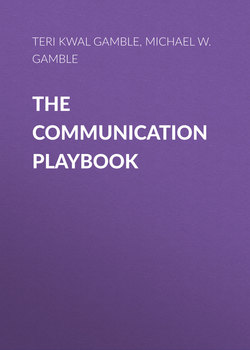Читать книгу The Communication Playbook - Teri Kwal Gamble - Страница 146
На сайте Литреса книга снята с продажи.
We Close Our Mind
ОглавлениеA key factor in how we view our world is the extent to which we open ourselves to new experiences. We select what we will perceive by deciding whether to expose ourselves to a variety of types and sources of information. How difficult is it for you to expose yourself to new ideas, people, places, or experiences?
For example, when driving through a poverty-stricken area on a nice cool day, some people immediately roll up their car windows and keep their eyes focused straight ahead, looking neither to their right nor to their left. They tell themselves that they are doing this for self-protection, but rolling up the windows and not looking out of them is also a means of avoiding contact with some of the depressing sights and sounds of a blighted area.
Whenever we close our eyes or minds, we bias the selection process, ending up with a distorted view of society and others’ lives. When it comes to selective attention, for example, you are more likely to overhear someone talking about buying a home if you are a real estate agent than if you are a computer engineer. When in a crowd, most people actively filter what doesn’t interest them and respond selectively to their preferred conversations, exhibiting what psychologists call “the cocktail party effect.”
Now, think about a relationship that you recently terminated or are planning to end. Since making the decision, have you become more aware of the negative qualities of the person you broke up or are breaking up with? When we like or love someone, we tend to perceive primarily their positive qualities. This is called the halo effect. However, when our perception of another person changes for the worse, we are more likely to perceive only their negative qualities. We call this the horn effect.
